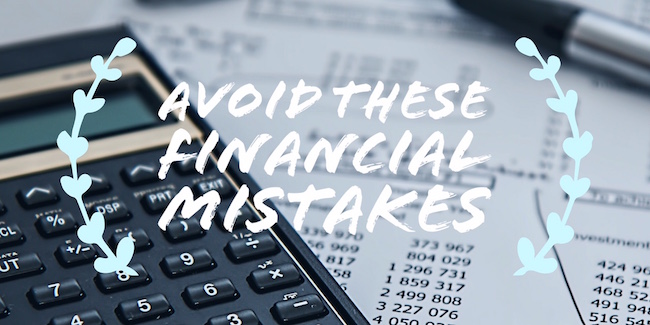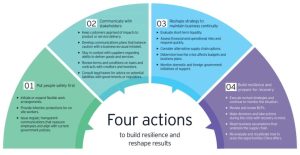Use These Techniques To Deal With Financial Errors.

A financial mistake can cost you a lot of money to repay or emotional loss of your bank account and credit score. In this article, we will show you how to prepare for financial traps to ensure that they do not occur in the fastest time.
Financial error type
Errors can happen to anyone, but they are more likely to happen to people who do not take preventive measures. If you make common financial mistakes, you can prepare for them and avoid costly consequences.
-
The bill was not paid on time. Arrears in payment will hit the credit rating and may lead to higher loan interest rates in the future. If you have only a few bills due each month, please pay them within three weeks of the due date.
-
Spend too much money on unnecessary things. Our consumption habits are easy to forget. Especially when we feel we have enough money. Plan how much it will cost a month and stick to it.
-
Invest without expert advice. When it comes to investment, it is important to research and consult experienced financial advisers before making any decisions. In this way, you can ensure that your investment can get the best possible return.
Even this provision applies to traders. If you are new to this field, you must learn how to trade binary options. In fact, this applies to all types of traders, regardless of whether you trade options or forex.
- Insufficient savings. One of the core objectives of the financial plan is to save as much money as possible. So you can
Error cause
People make mistakes for a variety of reasons, but the biggest reason is that preparation does not take time. Here are some tips to help prevent financial errors:
-
Make a budget and stick to it. Knowing your monthly expenses will help you get back on track so that you don’t overspend.
-
maintenance of order. Keep all important financial documents in one place for easy reference when needed. This includes all loan or credit applications that can be used to receive and submit budgets, invoices.
-
Please understand your debts and obligations. Make sure you know exactly what you are responsible for and when to pay. This will help prevent you from getting into too much debt and putting pressure on your financial situation later.
-
Keep abreast of current trends in the financial world. Understand the latest investment, loan options and tax laws, so as to make wise decisions on capital issues.
-
Be prepared to ask for help when needed. It’s no shame to admit that you need help financially. Most people do
How to avoid these mistakes
Financial mistakes can cause huge economic and emotional losses. It is important to be prepared to avoid falling into the same trap again when making financial mistakes.
Here are some tips to prevent financial errors:
-
Find out about the budget. Calculate how much you need each month to live a comfortable life and save money. This will help you stick to your spending limits and avoid overspending.
-
Don’t rely solely on your intuition when it comes to budgeting for the planning process. If you calculate how much you need in a month and write down the number, there is no room for error. This will help you stay organized and motivated when saving money.
-
Save as soon as possible. Automated savings processes can achieve long-term savings goals faster. If you use Google Calendar or Payday Loan and other tools to set the specified time each month, the estimated amount of funds will be automatically transferred to the savings account.
-
Avoid over investing in the stock market. If the stock market falls, buying stocks without sufficient research will cause huge losses. On the contrary, if you invest in the field of short-term trading, you can learn more about this field in the limited risk.
conclusion
Financial mistakes happen to the best people. Unfortunately, they make us depressed. But don’t worry. These tips can help you solve financial problems before they start, and manage them more effectively when problems occur. We should take proactive measures to prevent future disasters. You can go well on the road to a debt free life.









